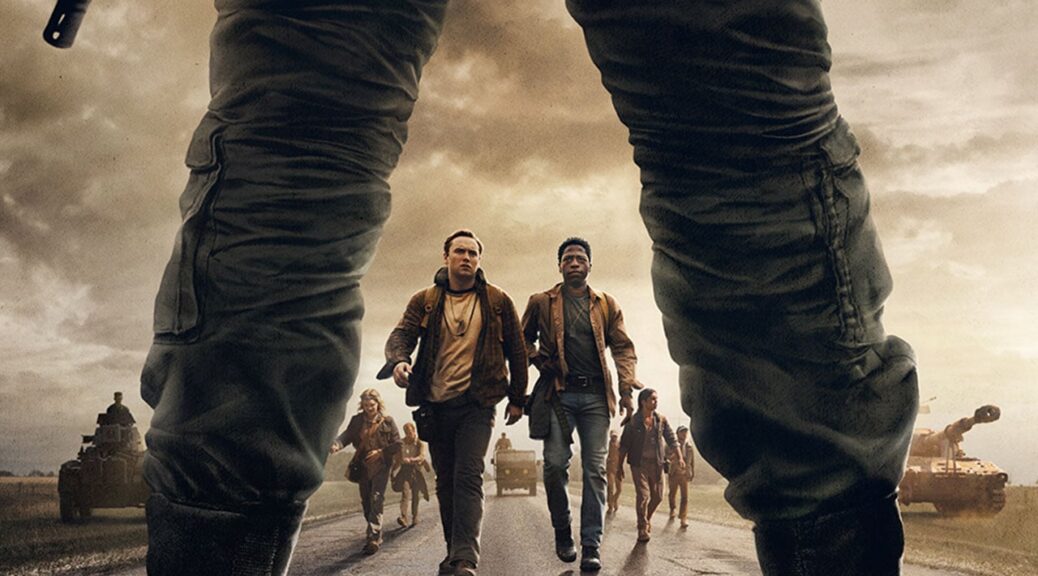The Long Walk
by Hope Madden
How fitting that Stephen King’s capitalist dystopian nightmare The Long Walk has finally been brought to the screen by director Francis Lawrence. Having helmed four Hunger Games films, including the most recent prequel, The Hunger Games: Ballad of Sonbirds & Snakes, he knows his way around these battles for what crumbs the wealthy deign to throw.
Based on King’s 1979 novel, the film follows a group of young men, each of whom signed up for and were chosen to participate in a last man standing competition: one road, one winner, no finish line. Walk until there’s no one else walking. The catch is that you can’t quit. Hell, you can’t even slow down. You walk until you die, either of exhaustion or by bullet spray (should you break the rules).
Lawrence has gathered a talented cast for these characters, beginning with everybody’s nemesis, the condescending voice of support and doom bellowing from the megaphone. Mark Hamill plays The Major with the perfect combination of swagger and benevolence to be contemptible without veering into caricature.
As Ray, our hero, Cooper Hoffman impresses, even when he’s saddled with King’s unfortunately quaint dialog. The camaraderie among the “four musketeers”— Ray, Pete (David Jonsson), Arthur (Tut Nyuot), and Hank (Ben Wang)—feels contrived from the beginning, Still, Cooper and Jonsson (so impressive in Alien: Romulus) share genuine chemistry, each elevating scenes with a glance, a shrug, a change in tone. Hoffman, in particular, plays nimbly with each of the other marchers, always delivering exactly the tone needed to keep someone’s head on straight and feet moving forward. Unsurprisingly, his moments with the invaluable Judy Greer (as Ray’s mother) are tender and heartbreaking.
This is a story most have deemed unfilmable given the utterly straightforward narrative. Cinematically, there’s not a lot you can do besides walk alongside 50 or so actors as they dwindle in number. There’s little opportunity to show rather than tell. Characters are defined by their dialog, and often, they’re narrowly etched.
But JT Mollner (Strange Darling) finds sly opportunities to broaden what is essentially a war metaphor—soldiers walking side by side, friendly enough but each hoping he’s the one who survives. Mollner and Lawrence subtly draw attention to the dystopian capitalist spectacle of boys walking themselves into an early grave, all so the rest of the country can watch and learn to be good, hard workers.
The Long Walk, as is always the case, will upset King purists because of its handful of plot changes. But when it comes to delivering a cinematic experience with an unfilmable novel, the movie’s a winner.

